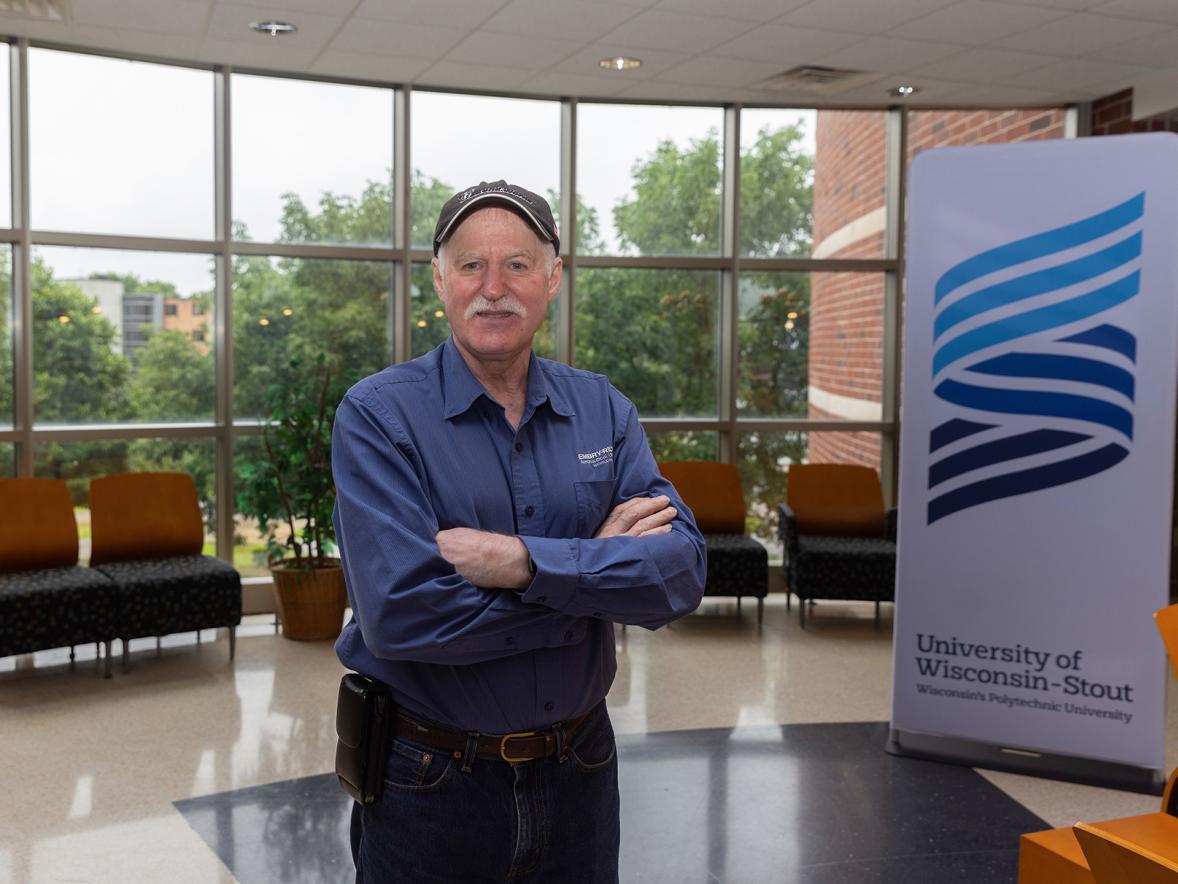Chancellors of the three University of Wisconsin System schools in west-central Wisconsin offered visions of their schools’ futures as they met with a group of state legislators.
Katherine Frank of UW-Stout, Maria Gallo of UW-River Falls and James Schmidt of UW-Eau Claire gave presentations April 4 at UW-Stout as they co-hosted a luncheon for six area lawmakers, an annual event that rotates between the universities.
They discussed their needs for state funding to achieve key components of their plans and how their universities must evolve to meet workforce needs.
The chancellors were joined by Ed Manydeeds, president of the UW System Board of Regents, at the Memorial Student Center.
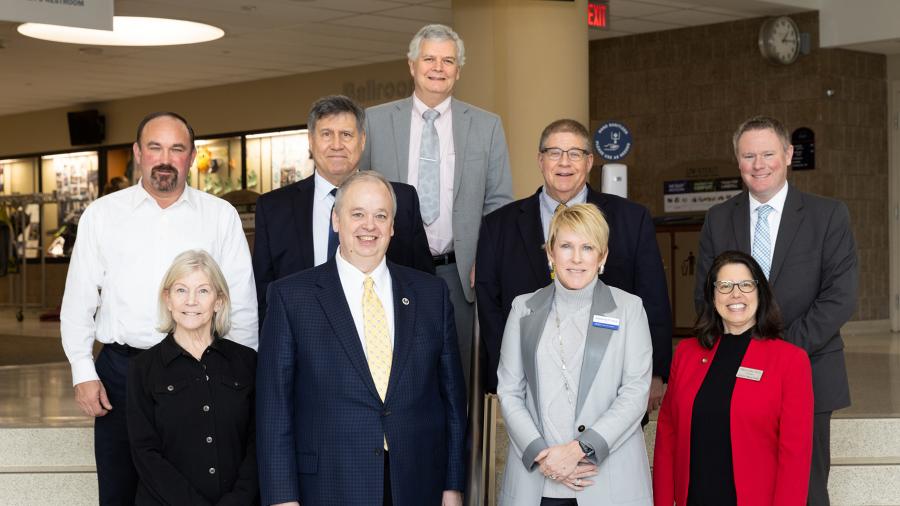
Legislators attending were:
- Rep. David Armstrong
- Sen. Janet Bewley
- Rep. Clint Moses
- Rep. Warren Petryk
- Sen. Jeff Smith
- Rep. Rob Summerfield
“I was impressed and very encouraged to know how forward-looking these chancellors are,
Bewley said. “This group is always looking to the future, how to serve students and how to serve the state.”
Armstrong appreciated the chance to hear the chancellors in a small group setting and came away with a better understanding of each school’s mission.
“The beauty of this event is that I saw the strengths of each campus, and I don’t want to do away with that. We need to keep their distinctness and strengths and not homogenize them,” Armstrong said.
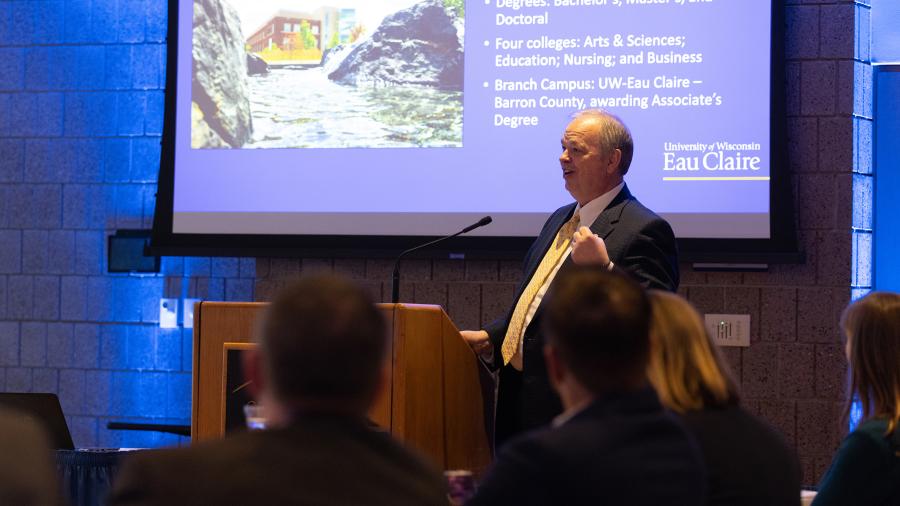
That sentiment was echoed by Schmidt, who said that “each of our missions is so distinctive, but yet we’ve found a way to work together.”
Gallo said that an investment in the UW System is an investment in Wisconsin. “We need to use the strength of all our institutions for the betterment of the state. The Wisconsin Idea is what public higher education is all about.”
Frank discussed UW-Stout’s planned $109 million renovation of Heritage Hall, a major academic hub that is critical for meeting workforce needs associated with statewide priorities. The building serves key campus programs in hospitality, education, food science and dietetics, and mental health counseling. The project would have an economic impact of nearly $2 million and support more than 1,300 jobs during one year of construction.
“One-quarter of our students pass through Heritage Hall each semester,” Frank said.
Currently, the project is in the planning and design stage supported by funding from the UW System.
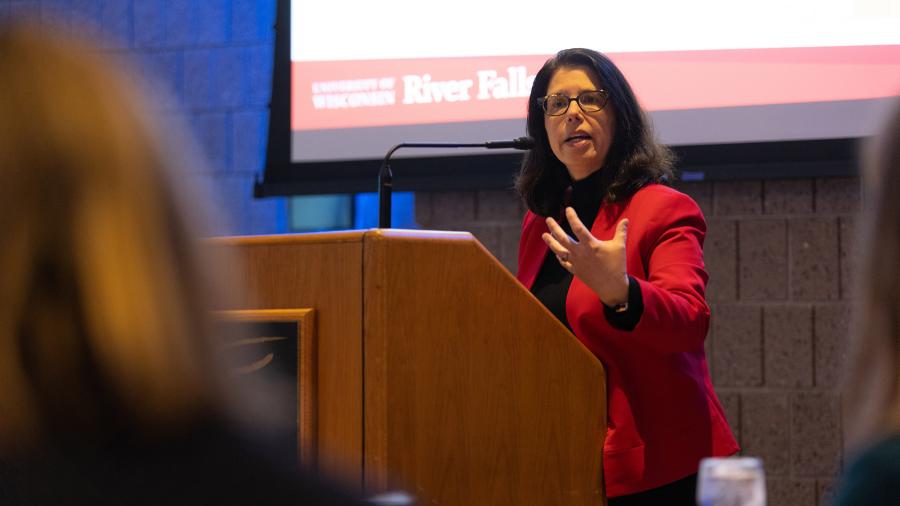
Gallo and Schmidt explained their proposals for new science buildings to replace aging structures and help transform key areas of their central campuses. More importantly, the buildings, like renovated Heritage Hall, would provide students with cutting-edge classroom and lab technology for high-demand programs the universities offer.
UW-River Falls’ SciTech building has been approved by the state Legislature. Gallo expressed her appreciation to the legislators for their support. SciTech is a unique project that will offer a university-business collaboration center, a clear testament to the importance of programs and facilities like it to regional employers, she said.
Funding for the first phase of UW-Eau Claire’s Health Sciences building has been approved, and design is underway. Second-phase funding for construction needs state approval.
Bewley said she views UW System academic buildings as part of the state’s infrastructure. “In the Legislature we’re very aware of the state’s infrastructure needs,” she said.
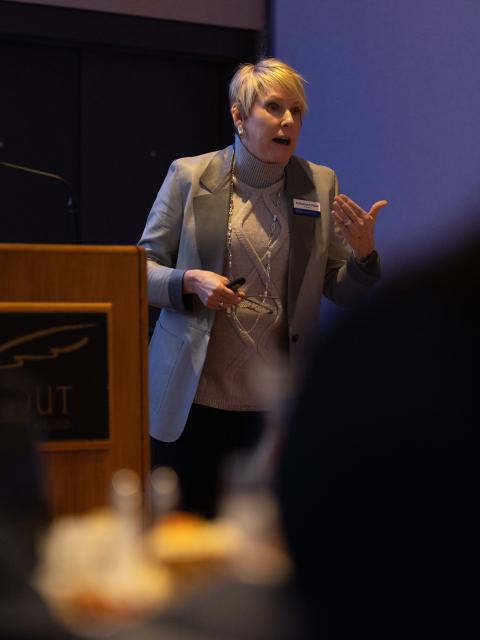
The chancellors highlighted other ways their schools are striving to meet the needs of students, such as the FOCUS2030 strategic plan at UW-Stout; new majors and a Dairy Pilot Plant renovation at UW-River Falls; and the expansive Sonnentag Center and County Materials Complex funded generously by alumni John and Carolyn Sonnentag, nearing construction at UW-Eau Claire.
The leaders also noted their universities’ efforts to provide hands-on learning opportunities through internship programs, research opportunities and high-impact experiences.
- UW-Eau Claire is a highly ranked undergraduate research institution, Schmidt said. The school will host the 2023 National Conference on Undergraduate Research, which annually draws more than 4,500 students and faculty from around the U.S.
- Nearly 36% of UW-River Falls graduates are in STEM fields. UW-River Falls produces the third highest percentage of graduates with STEM degrees in the UW System.
- All UW-Stout students participate in at least one experiential learning opportunity like internships, co-ops, and practicums, and UW-Stout continues to be a leader in the UW System with an employment rate of 98.4% within six months of graduation. “This is a key feature of the UW-Stout polytechnic approach and adherence to our distinct mission,” Frank said.
At all three institutions they are working to “meet people where they are” to recruit new students into the future. At UW-Stout, for example, 18% of students are online.
Innovative programming and drawing out-of-state talent will be important as forecasts show the number of high school graduates in Wisconsin dropping significantly in three years, Schmidt said.
The luncheon included UW System University Relations officials Kathy Divine, director of state relations; Deej Lundgren, director of state relations; Allison Steil, director of federal relations, and other officials from the three universities.
Before and after the luncheon, tours of Heritage Hall with Frank and Justin Utpadel, director of Facilities Management at UW-Stout, addressed issues that would be resolved with renovation, including outdated hospitality labs, classrooms and technology; accessibility compliance in and around the building; lack of natural light; and infrastructure problems including plumbing and air handling.
###
Group photo caption:
Front row from left, state Sen. Janet Bewley, UW-Eau Claire Chancellor James Schmidt, UW-Stout Chancellor Katherine Frank and UW-River Falls Chancellor Maria Gallo. Back row, state Rep. Clint Moses, UW System Board of Regents President Ed Manydeeds, state Sen. Jeff Smith, state Rep. David Armstrong and state Rep. Rob Summerfield. Missing is state Rep. Warren Petryk.





